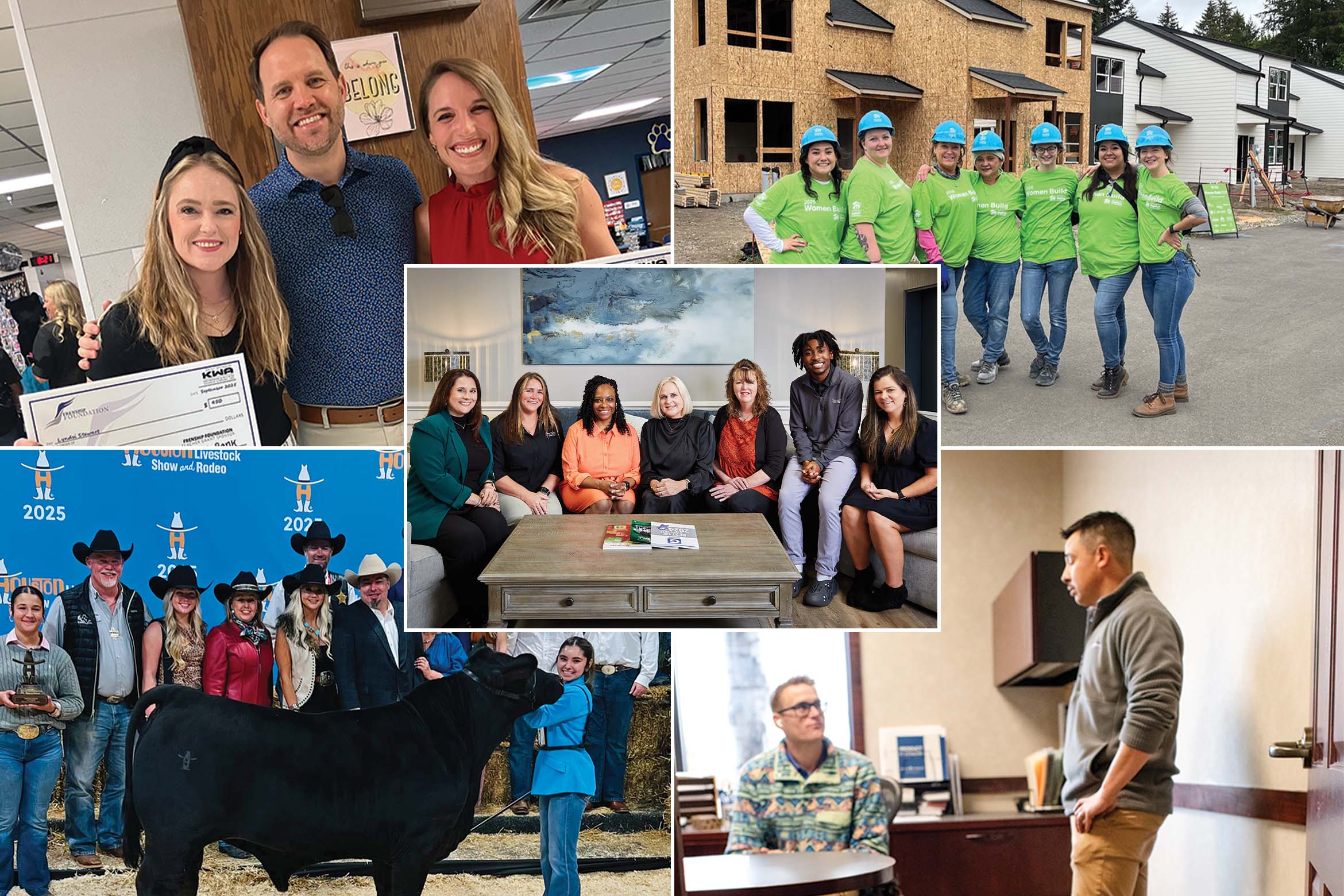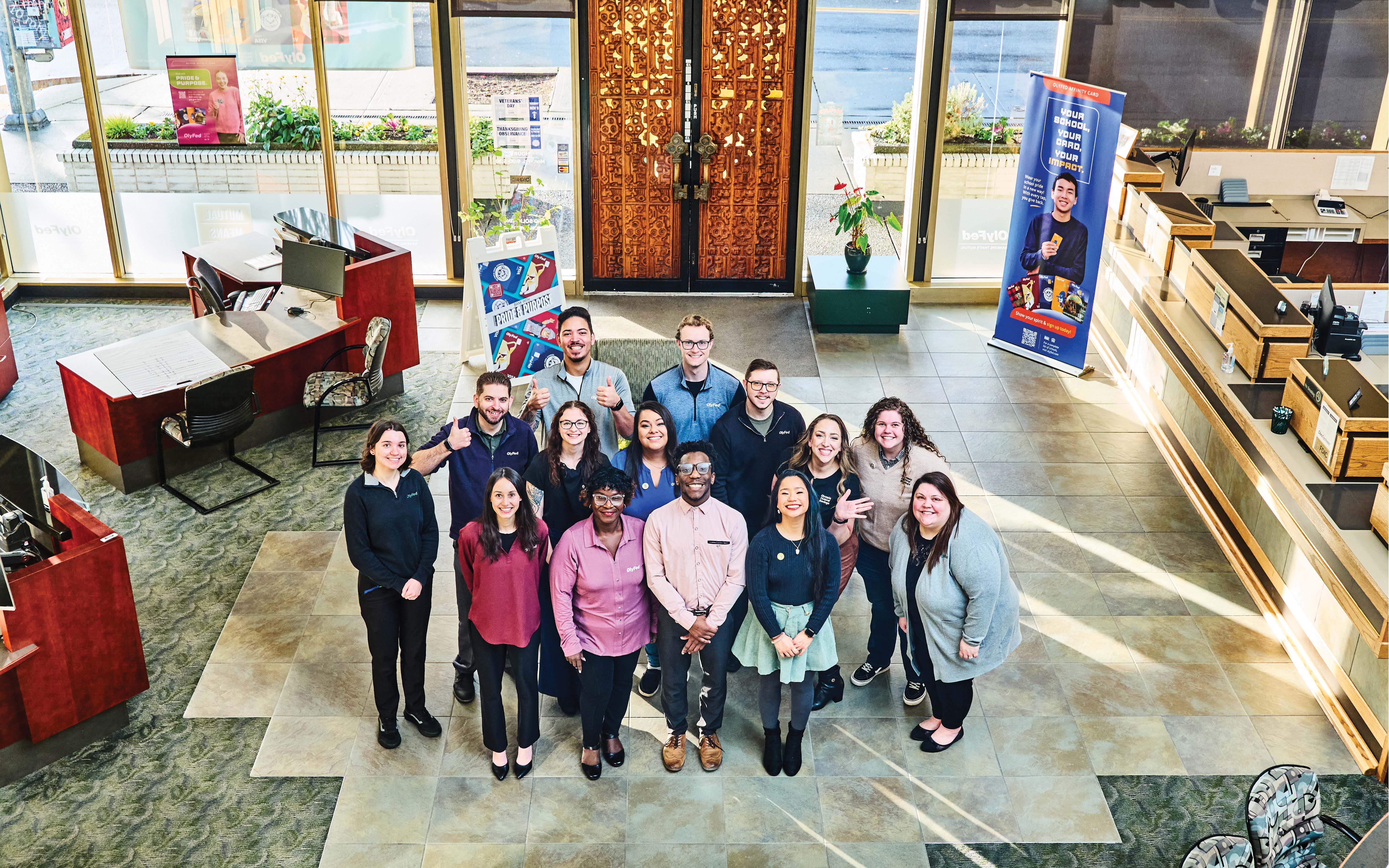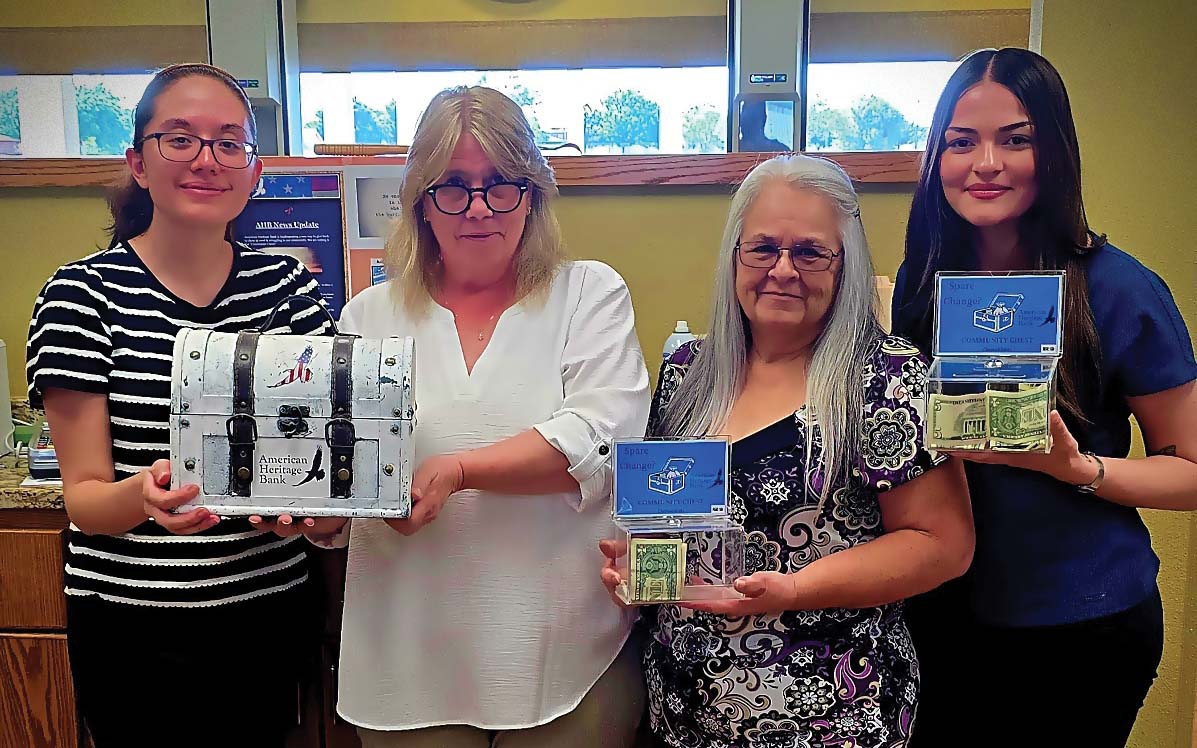Individuals looking for a fulfilling career can find their calling within the community banking industry—even if they’d never considered it before.
Establishing a Lifelong Career in Community Banking
June 01, 2025 / By Katie Kuehner-Hebert
Individuals looking for a fulfilling career can find their calling within the community banking industry—even if they’d never considered it before.
Those who find themselves within the community banking industry—whether planned or unexpectedly—find a lucrative, lifelong career, even if it’s not what they initially had in mind. Claire Mayeaux, HR director and benefits administrator at $1.4 billion‑asset BOM Bank in Natchitoches, Louisiana, knows this well.
In high school, Mayeaux decided she wanted to own a bakery, so she attended Northwestern State University in Natchitoches, pursuing a degree in hospitality management and tourism with a concentration in culinary arts. In high school, she began working at a local restaurant, which transitioned into an eight-year career, half of which was in management.
“I thrived in customer service, loved helping people and enjoyed working with the community every day,” Mayeaux says.
However, at age 24, her career took a turn toward banking. At one local bank, she was trained in various roles before choosing to build her career in human resources. That’s when Mayeaux moved to BOM Bank, rising up the ranks to become HR director and benefits administrator.
“BOM Bank was founded in 1903 and has been a pillar in our small-town community ever since,” she says. “BOM has a reputation for community involvement—its staff is present at every ribbon cutting, social event, and as members of numerous organizations. When I began working for BOM in 2018, I knew I had found my home.”
“I knew community banking would … take me to the next level in my career as a compliance professional.”—Lily Grizzle, MainStreet Bank
More than a job
For anyone in high school, college or even those rooted in their current job and considering a career change, Mayeaux encourages them to take another look at banking.
“Banking, especially community banking, is a career that can provide longevity and stability throughout your life,” she says. “It’s never too late to take a leap and change your career. Working at a community bank is a path I strongly encourage anyone to consider. Being part of a community bank is more than just a job. It’s being part of something greater: a community.”
Brittany Robinson, a rising employee at BOM Bank, agrees. While she enjoyed her time as a cashier in a grocery store, she decided to transition into banking in pursuit of financial stability and greater career growth opportunities. After starting as a teller, Robinson worked her way to become a head teller and then to her current position as a branch manager.
“I chose BOM Bank because I was inspired by its strong commitment to giving back to the community,” Robinson says. “I wanted to align myself with an organization that not only supports but actively engages with and values the people it serves.”
Like many community banks, BOM Bank strives to stay involved in its communities, Mayeaux says. The bank encourages its staff to volunteer with local schools to teach financial literacy, join community organizations and give back at fairs, festivals and local events.
The banking industry also provides excellent benefits compared with many other career paths, she says. BOM Bank offers employer-paid health, dental, disability and life insurance. The community bank also offers a competitive compensation structure and a “generous” time-off package, which includes holidays, sick time, personal time and vacation.
At $2.2 billion-asset MainStreet Bank in Fairfax, Virginia, the opportunities, benefits and culture were too attractive to pass up, say two rising employees who transitioned to banking from other sectors.
Lily Grizzle moved from the mortgage world to community banking because working for a mortgage lender “felt very transactional,” she says.
“The goal was to always be faster,” Grizzle adds. “I craved a more relationship-based organization where we not only conducted transactions but also helped customers through life with their financial decisions.”
She always had a personal goal of becoming a certified regulatory compliance manager, and “a big chunk” of that test was about deposit rules and regulations.
“I loved how community banks offer such a wide range of products, because it pushed me to learn about all the different rules involved,” says Grizzle, now MainStreet Bank’s compliance officer. “I knew community banking would stretch me beyond my comfort zone and take me to the next level in my career as a compliance professional. Finally, I love the community roots at the heart of community banking.”
Bringing new colleagues into the fold
At MainStreet Bank, “our culture is everything,” says Trish Smith, executive vice president and chief human resources officer.
During the recruiting process, the MainStreet highlights its core values and the many opportunities it offers, Smith says. Beyond the typical benefits package, the bank demonstrates its commitment to family and work-life balance with benefits like paid family leave and summer wellness PTO.
Its headquarters and operations center have fitness centers for employees and their adult family members. The bank also hosts several wellness challenges every year, like its “Attitude of Gratitude” challenge, which focuses on mental health.
“Community is at the heart of what we do, and we highlight that by offering paid volunteer time off and organizing volunteer opportunities throughout the year,” Smith says. “Additionally, our employee-directed charitable giving program, Making Change, empowers our employees to donate [bank-provided funds] to organizations within our community that are meaningful to them.”
At the core of MainStreet Bank’s culture is the CHEER Committee, which plans events, lunches and games to strengthen its social connections and provide quick, fun breaks, she says. The bank hosts one in-person and one virtual event per month.
“We just wrapped up our [first] employee appreciation week called ‘We Think the World of You,’ where we came up with travel-themed events to celebrate our staff,” Smith says. “One day, I even dressed as a flight attendant and went around passing out snacks and water.”
To support employees’ professional development, MainStreet Bank in 2021 added a full-time learning and development officer to its team, she says. The role not only creates new learning opportunities within the organization but also helps employees find external opportunities to assist in their continued growth.
“Community banking offers many different opportunities for growth,” Smith says. “We encourage our employees to apply for open positions that might interest them, with no restrictions on how long they must have been in their current role to try something new.”
Subscribe now
Sign up for the Independent Banker newsletter to receive twice-monthly emails about new issues and must-read content you might have missed.
Sponsored Content
Featured Webinars
Join ICBA Community
Interested in discussing this and other topics? Network with and learn from your peers with the app designed for community bankers.
Subscribe Today
Sign up for Independent Banker eNews to receive twice-monthly emails that alert you when a new issue drops and highlight must-read content you might have missed.
News Watch Today

Join the Conversation with ICBA Community
ICBA Community is an online platform led by community bankers to foster connections, collaborations, and discussions on industry news, best practices, and regulations, while promoting networking, mentorship, and member feedback to guide future initiatives.













